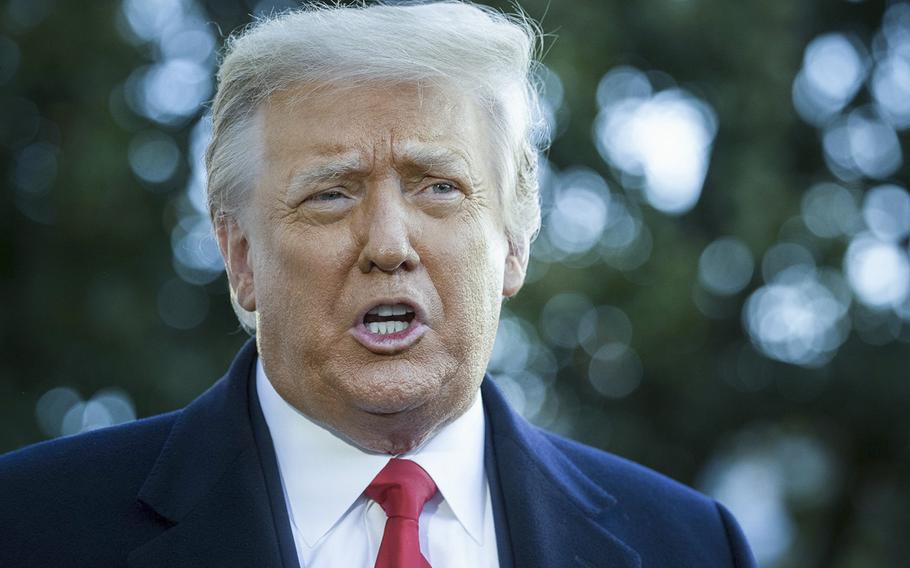NEW YORK — Former president Donald Trump's namesake company was convicted of tax crimes committed by two of its longtime executives after a Manhattan trial that gave jurors a peek at some of the inner workings of the Trump Organization's finances.
The real estate, hospitality and golf resort operation headquartered at Trump Tower on Fifth Ave. faces the possibility of a $1.6 million fine. New York Supreme Court jurors began their deliberations midday on Monday.
The company was charged with scheme to defraud, conspiracy, criminal tax fraud and falsifying business records.
Prosecutors built the case largely around longtime Trump Organization Chief Financial Officer Allen Weisselberg, who pleaded guilty in August to 15 counts including tax fraud, conspiracy and grand larceny. He was promised a steeply reduced sentence of five months in jail in exchange for testifying against the company. He had faced up to 15 years in prison.
Jeffrey McConney, the company's comptroller who admitted in his testimony to committing crimes, was granted immunity under New York law because he was called by prosecutors as a grand jury witness in the case.
In his testimony, Weisselberg detailed how he and McConney schemed to cheat state and federal tax authorities over a 15-year period beginning in 2005. Weisselberg used the company to cover major personal expenses like rent for a luxury apartment on the Hudson River, Mercedes-Benz leases for himself and his wife and private school tuition for his grandchildren.
In some instances, he paid the company back for his personal expenses, which allowed him to use pretax compensation illegally. Other expenses were paid for by the company but not reported as taxable income as required by tax laws.
Prosecutors argued the conduct of Weisselberg and McConney made the company criminally liable. Two Trump Organization entities — the Trump Corporation and the Trump Payroll Corp. — were on trial. Both were found guilty on all charges.
Lawyers for the entities argued that Weisselberg had no intent to help the company — only himself — and that prosecutors did not successfully prove there was corporate liability. Prosecutors argued the company saved on their Medicare tax responsibility and benefited in other ways from the scheme.
The Manhattan District Attorney's Office also argued at the close of the case that Trump had personal knowledge of the tax cheating carried out by his executives. At one point in his summation, Assistant District Attorney Joshua Steinglass pointed to a document that had been initialed by Trump and called it "explicit" proof of his knowing that his executives were tinkering with expenses to reduce their tax liabilities.
Trump has not been charged with wrongdoing. In a recent social media post, he denied having knowledge of the crimes Weisselberg and McConney committed.

Former president Donald Trump’s namesake company was convicted of tax crimes committed by two of its longtime executives after a Manhattan trial that gave jurors a peek at some of the inner workings of the Trump Organization’s finances. Trump has not been charged with wrongdoing. In a recent social media post, he denied having knowledge of the crimes. (Al Drago/Bloomberg)